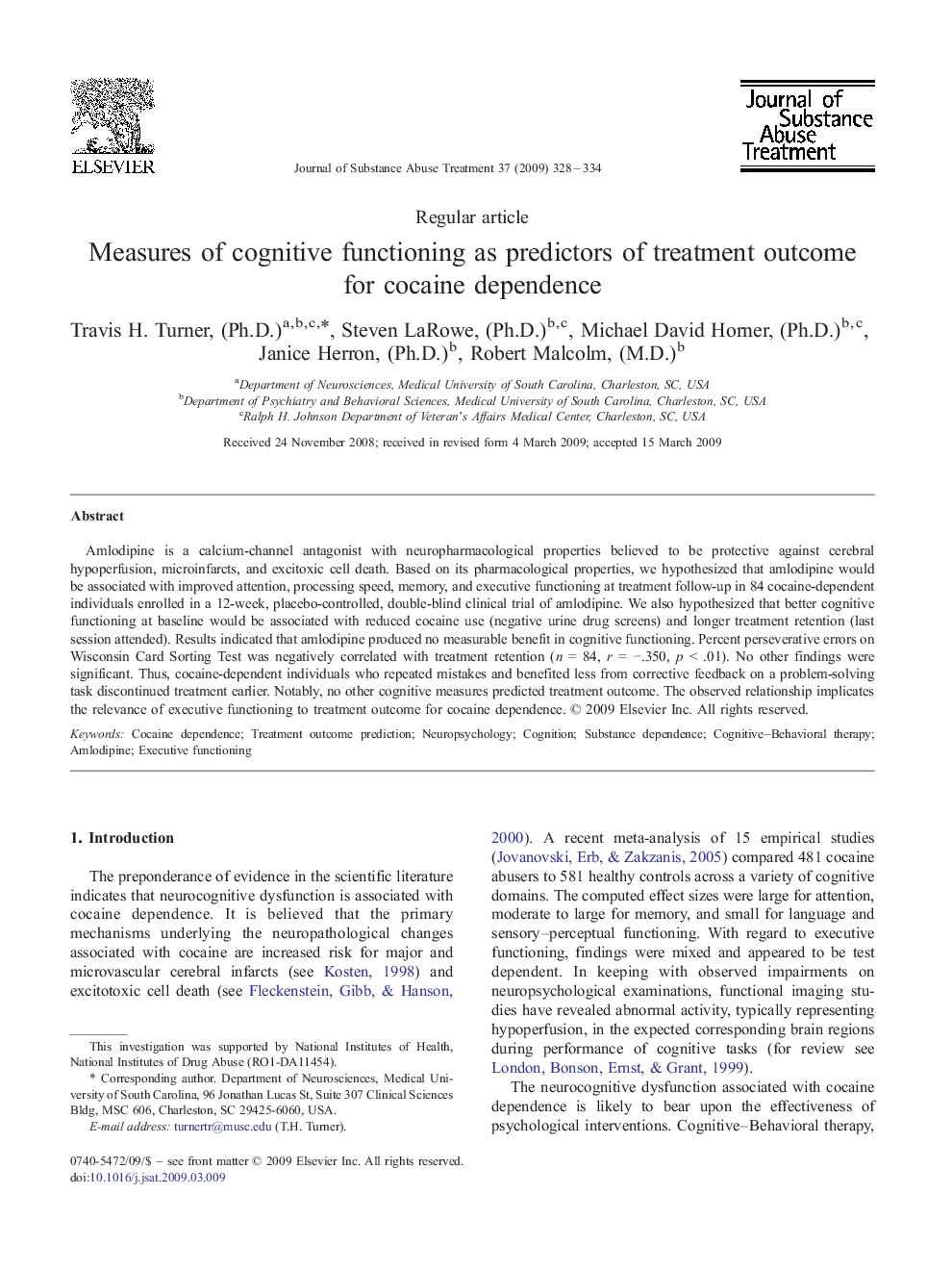| کد مقاله | کد نشریه | سال انتشار | مقاله انگلیسی | نسخه تمام متن |
|---|---|---|---|---|
| 328244 | 543115 | 2009 | 7 صفحه PDF | دانلود رایگان |

Amlodipine is a calcium-channel antagonist with neuropharmacological properties believed to be protective against cerebral hypoperfusion, microinfarcts, and excitoxic cell death. Based on its pharmacological properties, we hypothesized that amlodipine would be associated with improved attention, processing speed, memory, and executive functioning at treatment follow-up in 84 cocaine-dependent individuals enrolled in a 12-week, placebo-controlled, double-blind clinical trial of amlodipine. We also hypothesized that better cognitive functioning at baseline would be associated with reduced cocaine use (negative urine drug screens) and longer treatment retention (last session attended). Results indicated that amlodipine produced no measurable benefit in cognitive functioning. Percent perseverative errors on Wisconsin Card Sorting Test was negatively correlated with treatment retention (n = 84, r = −.350, p < .01). No other findings were significant. Thus, cocaine-dependent individuals who repeated mistakes and benefited less from corrective feedback on a problem-solving task discontinued treatment earlier. Notably, no other cognitive measures predicted treatment outcome. The observed relationship implicates the relevance of executive functioning to treatment outcome for cocaine dependence.
Journal: Journal of Substance Abuse Treatment - Volume 37, Issue 4, December 2009, Pages 328–334